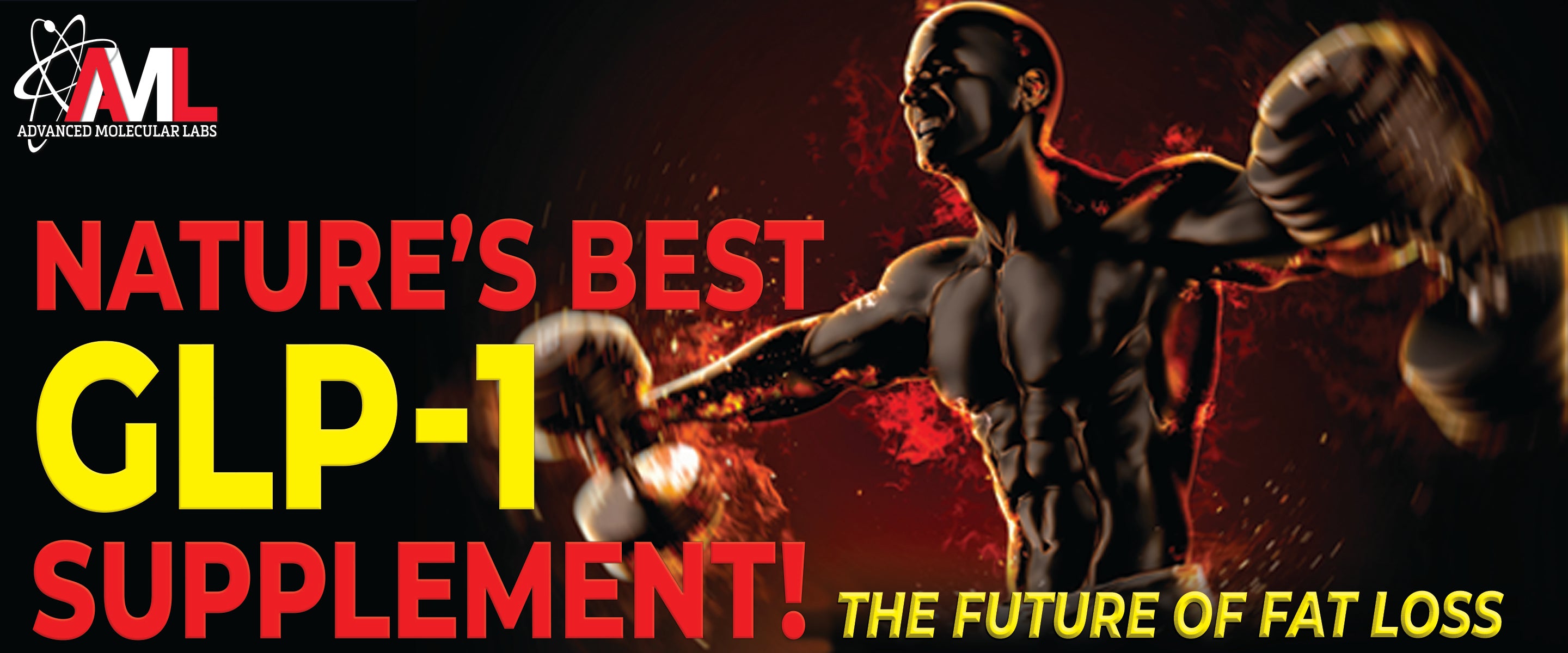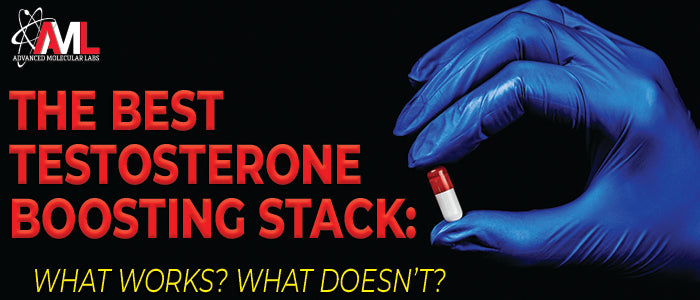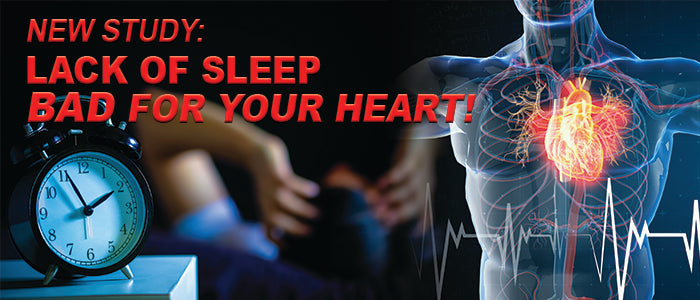


Nature's Best GLP-1 Supplement!
By Robert Schinetsky
Glucagon-like peptide-1 (GLP-1) is a hormone secreted after eating that performs a number of actions in the body, including:
- Stimulating insulin release
- Inhibiting glucagon secretion
- Increasing insulin sensitivity in skeletal muscle
- Decreasing hepatic gluconeogenesis
GLP-1 secretion also is known to strongly reduce feeding. Collectively, these effects help to improve a variety of metabolic parameters associated with obesity and diabetes.[1]
It comes as little surprise, then, that compounds targeting GLP-1 receptors have emerged as a promising target in the treatment of metabolic disorders, including cardiovascular disease, which still ranks as the leading cause of death.[2]
However, many are expensive and come with numerous side effects.[3,4,15]
The best weapon against metabolic disorders is prevention -- Eating a healthy diet (such as the Mediterranean Diet), exercising regularly, sleeping well, managing stress, and maintaining a healthy body weight. These lifestyle factors are essential for staving off lifestyle-induced metabolic disease, including cardiovascular disease, obesity, and type 2 diabetes.
Researchers have also identified numerous plant-derived ingredients (aka supplements) to help support a healthy lifestyle. These ingredients work along similar pathways as pharmacy synthesized agents but are much more affordable and without the laundry list of side effects.
Advanced Molecular Labs has brought together three exceptional ingredients in Thermo Heat GLP-1 to help support brown adipose tissue (BAT) thermogenesis and glucagon-like peptide-1 activity.†
Thermo Heat GLP-1 Ingredients
Berberine
Berberine (BBR) is an alkaloid naturally occurring in various plants and has been associated with several prominent health benefits, including those related to cardiometabolic health (e.g. blood glucose levels and weight loss).†
One of the main mechanisms through which berberine offers benefits is via the activation of AMP-activated protein kinase (AMPK), an enzyme found in every one of the body’s cells.[5]
Other ways in which berberine supports body recomposition and blood sugar stability are[6,7,8]
- Upregulating the release of GLP-1†
- Support insulin’s activity in the body†
- Stimulating brown adipose tissue (BAT) thermogenesis
- Increasing glycolysis (which supports ATP production)
- Reducing sugar production in the liver (hepatic gluconeogenesis)
- Attenuating the breakdown of carbohydrates in the gut
- Boosting the quantity of healthy bacteria in the gut
Believe it or not, berberine is also known to offer neuroprotection and mood support as well.[8]†
Recently published research found that.[27]
A meta-analysis of 14 human studies found that berberine offered comparable benefits to pharmaceuticals for the promotion of healthy blood sugar levels.[9] In fact, metformin (a common diabetes drug) is often combined with GLP-1 agonists for the treatment of metabolic disorders.[10]†
Berberine acts in a manner similar to metformin and supports the release of GLP-1.
A recently published systematic review and meta-analysis of 49 human studies assessed the potential benefit of berberine across a host of cardiometabolic markers and concluded that the plant alkaloid is most beneficial when taken consistently and in the range of 1,000-1,800mg per day.[1]†
Note: Common dosing practice is to administer berberine in 500mg 2-3 times daily.
Yet another recent review of berberine research concluded that:
“Preventing mitochondrial damage, reducing adipose tissue fat, and reducing oxidative stress are thus among the results of BBR-induced GLP-1. The lower costs of BBR, and its limited side effects and higher availability, make it a promising health support supplement for DM [diabetes mellitus].”[20]†
Finally, a February 2024 study, published in The American Journal of Chinese Medicine, discovered that metabolites of berberine (berberrubine and palmatine) could facilitate GLP-1 and insulin secretion and enhance glucose tolerance. The berberine by-products were also noted to alleviate oxidative stress, and mitochondrial dysfunction.[27]†
Based on these findings, the team of researchers concluded that orally administered berberine “provide important ideas for stimulating GLP-1 secretion and the treatment of T2DM.”[27]†
Berberine vs Dihydroberberine
Dihydroberberine (DHB) has seen a tremendous spike in utilization across the supplement industry and is often heralded as being “5x more effective than berberine.” This is due to some research that dihydroberberine can offer similar benefits to regular berberine at a much lower dose (100mg vs 500mg).[11]
However, when delving into the pharmacokinetics of berberine and dihydroberberine, you’ll see that when you ingest berberine, it is initially converted into dihydroberberine, and then converted back into berberine.[12]
So, while dihydro berberine may allow for a smaller dose to be used, it still ultimately ends up as berberine in the bloodstream. Two other key factors to consider are cost (dihydroberberine is incredibly expensive) and amount of data (berberine has been studied far more times in humans than dihydroberberine under oral administration).
The main takeaway here is that berberine is a formidable natural agent for BAT thermogenesis, GLP-1 support, weight loss, and cardiometabolic health promotion.[23]†
Myricetin
Myricetin is a natural plant-derived inhibitor for α-glucosidase and α-amylase (two enzymes that aid in the digestion of carbohydrates). Researchers note that it possesses antioxidant activity as well as anti-inflammatory, anti-obesity effects, neuroprotective, hepatoprotective, and cardiovascular support.[13,14]†
A recently published study in Frontiers in Nutrition noted that myricetin offered multiple avenues of support against cardiometabolic disorders, including[16]:†
- Inhibiting the digestion and uptake of carbohydrates
- Promoting insulin secretion as a possible GLP-1 receptor agonist†
- Protecting endothelial cells from oxidative stress induced by high blood sugar
Previous animal studies have also demonstrated that myricetin inhibits DPP-4 and enhances GLP-1 levels.[17] Essentially, myricetin helps to delay the breakdown of GLP-1, which prolongs the hormones activity in the body!
A 2019 study concluded that myricetin intake was inversely related to the prevalence of type 2 diabetes.[14] Based on the data, researchers believe that myricetin may have a protective effect against the development of type 2 diabetes.[14] FYI, the average daily intake of myricetin in the analysis was 120.5 ± 95.7 mg.[14]†
One other avenue through which myricetin may support cardiometabolic health is by enhancing mitochondrial activity, possibly by activating PGC-1α and SIRT1. Animal studies, thus far, have documented that myricetin administration improved endurance capacity and exercise performance.[18]
In case you weren’t aware, high blood sugar has been shown to promote mitochondrial dysfunction and contribute to cardiovascular damage and disease.[19]
The takeaway here is that the combination of berberine plus myricetin supports cardiometabolic health and weight loss efforts from a multitude of angles, and the two actually work together to support longer-lasting GLP-1 activity.†
But, there’s still one ingredient in Thermo Heat GLP-1 to discuss…
Cinnamon Bark Extract
Cinnamon is one of the most common cooking and baking spices on Earth. It’s used in all manner of culinary fare, from breakfast thru dessert, and has been a staple ingredient in sports nutrition supplements (glucose disposal agents, specifically) for nearly 20 years due to the understanding that cinnamon possesses an insulin mimetic and insulin sensitizing action.[24]
More specifically, cinnamon plays “significant role in the phosphorylation of signaling proteins and enhancement of expression of insulin sensitive glucose transporters which results in mitigation of the insulin resistance.”[25]†
Numerous trials have been conducted on cinnamon and cinnamon extracts for its impact on inflammation, blood sugar levels, and cholesterol/triglycerides. A 2023 review in Dose Response noted that “chemicals [from cinnamon] help in decreasing insulin resistance and can act against hyperglycemia and dyslipidemia, inflammation and oxidative stress, obesity, overweight, and abnormal glycation of proteins. Cinnamon has shown to improve all of these conditions in in vitro, animal, and/or human studies.”[21]†
Basically, cinnamon (and its phytoactive components) are beneficial in humans for supporting cardiometabolic health.†
A subsequent 2024 systematic review by a different group of researchers stated that:
“Findings from 24 RCTs [randomized controlled trials) revealed that cinnamon supplementation had a statistically significant reduction in fasting blood sugar.”[22]†
How cinnamon exactly confers these benefits is still being researched, but, thus far, researchers note that cinnamon’s phytoactives may function as antioxidants, potentiate insulin action, and may be beneficial in the control of glucose intolerance and diabetes.[26]†
This is why THERMO HEAT GLP-1 includes a cinnamon extract standardized for 20% polyphenols, an important active component in cinnamon!
Suggested Use
As a dietary supplement, take one (1) capsule of Thermo Heat GLP-1 twice daily (one with breakfast and one with dinner). For best results, use it as part of a low-calorie or low-carbohydrate diet and exercise program.
GLP-1 may also be stacked with Advanced Molecular Labs supplements, including Thermo Heat, Thermo Heat Cocktail, and Thermo Heat Fat-Burning Protein.
Takeaway
Cardiovascular disease and metabolic disorders represent a clear and present (albeit very avoidable) danger. To combat the onset of dysfunction, maintaining (or committing to) several lifestyle habits is essential. This includes:
- Eating a healthy diet
- Exercising regularly
- Getting 7-9 hours of sleep each night
- Not smoking
- Managing stress
- Restricting alcohol
- Spending time outdoors
- Maintaining a healthy body weight
Supplements exist to help you stick to these habits and improve their results. Advanced Molecular Labs is committed to developing the most beneficial, research-backed products on the market.
Thermo Heat GLP-1 is the latest innovation specifically designed to support BAT thermogenesis and GLP-1 activity to aid body recomposition and cardiometabolic health.†
† These statements have not been evaluated by the Food and Drug administration. This product is not intended to diagnose, treat, cure, or prevent any disease.
© Published by Advanced Research Media, Inc. 2024
© Reprinted with permission from Advanced Research Media, Inc.
References
- Zamani M, Zarei M, Nikbaf-Shandiz M, Hosseini S, Shiraseb F, Asbaghi O. The effects of berberine supplementation on cardiovascular risk factors in adults: A systematic review and dose-response meta-analysis. Front Nutr. 2022 Oct 14;9:1013055. doi: 10.3389/fnut.2022.1013055. PMID: 36313096; PMCID: PMC9614282.
- González-García, I.; Milbank, E.; Diéguez, C.; López, M.; Contreras, C. Glucagon, GLP-1 and Thermogenesis. Int. J. Mol. Sci. 2019, 20, 3445. https://doi.org/10.3390/ijms20143445
- Filippatos TD, Panagiotopoulou TV, Elisaf MS. Adverse Effects of GLP-1 Receptor Agonists. Rev Diabet Stud. 2014 Fall-Winter;11(3-4):202-30. doi: 10.1900/RDS.2014.11.202. Epub 2015 Feb 10. PMID: 26177483; PMCID: PMC5397288.
- https://www.uptodate.com/contents/glucagon-like-peptide-1-based-therapies-for-the-treatment-of-type-2-diabetes-mellitus#H866779
- Ai X, Yu P, Peng L, Luo L, Liu J, Li S, Lai X, Luan F, Meng X. Berberine: A Review of its Pharmacokinetics Properties and Therapeutic Potentials in Diverse Vascular Diseases. Front Pharmacol. 2021 Nov 3;12:762654. doi: 10.3389/fphar.2021.762654. PMID: 35370628; PMCID: PMC8964367.
- Sun S, Yang Y, Xiong R, Ni Y, Ma X, Hou M, Chen L, Xu Z, Chen L, Ji M. Oral berberine ameliorates high-fat diet-induced obesity by activating TAS2Rs in tuft and endocrine cells in the gut. Life Sci. 2022 Dec 15;311(Pt A):121141. doi: 10.1016/j.lfs.2022.121141. Epub 2022 Oct 29. PMID: 36341914.
- Xie W, Su F, Wang G, Peng Z, Xu Y, Zhang Y, Xu N, Hou K, Hu Z, Chen Y, Chen R. Glucose-lowering effect of berberine on type 2 diabetes: A systematic review and meta-analysis. Front Pharmacol. 2022 Nov 16;13:1015045. doi: 10.3389/fphar.2022.1015045. PMID: 36467075; PMCID: PMC9709280.
- Och A, Och M, Nowak R, Podgórska D, Podgórski R. Berberine, a Herbal Metabolite in the Metabolic Syndrome: The Risk Factors, Course, and Consequences of the Disease. Molecules. 2022 Feb 17;27(4):1351. doi: 10.3390/molecules27041351. PMID: 35209140; PMCID: PMC8874997.
- Dong H, Wang N, Zhao L, Lu F. Berberine in the treatment of type 2 diabetes mellitus: a systemic review and meta-analysis. Evid Based Complement Alternat Med. 2012;2012:591654. doi: 10.1155/2012/591654. Epub 2012 Oct 15. PMID: 23118793; PMCID: PMC3478874.
- Davies MJ, Aroda VR, Collins BS, Gabbay RA, Green J, Maruthur NM, Rosas SE, Del Prato S, Mathieu C, Mingrone G, Rossing P, Tankova T, Tsapas A, Buse JB. Management of hyperglycaemia in type 2 diabetes, 2022. A consensus report by the American Diabetes Association (ADA) and the European Association for the Study of Diabetes (EASD). Diabetologia. 2022 Dec;65(12):1925-1966. doi: 10.1007/s00125-022-05787-2. Epub 2022 Sep 24. PMID: 36151309; PMCID: PMC9510507.
- Moon, J.M.; Ratliff, K.M.; Hagele, A.M.; Stecker, R.A.; Mumford, P.W.; Kerksick, C.M. Absorption Kinetics of Berberine and Dihydroberberine and Their Impact on Glycemia: A Randomized, Controlled, Crossover Pilot Trial. Nutrients 2022, 14, 124. https://doi.org/10.3390/nu14010124
- Feng, R., Shou, JW., Zhao, ZX. et al. Transforming berberine into its intestine-absorbable form by the gut microbiota. Sci Rep 5, 12155 (2015). https://doi.org/10.1038/srep12155
- Song X, Tan L, Wang M, Ren C, Guo C, Yang B, Ren Y, Cao Z, Li Y, Pei J. Myricetin: A review of the most recent research. Biomed Pharmacother. 2021 Feb;134:111017. doi: 10.1016/j.biopha.2020.111017. Epub 2020 Dec 15. PMID: 33338751.
- Yao Z, Li C, Gu Y, Zhang Q, Liu L, Meng G, Wu H, Bao X, Zhang S, Sun S, Wang X, Zhou M, Jia Q, Song K, Li Z, Gao W, Niu K, Guo C. Dietary myricetin intake is inversely associated with the prevalence of type 2 diabetes mellitus in a Chinese population. Nutr Res. 2019 Aug;68:82-91. doi: 10.1016/j.nutres.2019.06.004. Epub 2019 Jun 22. PMID: 31421396.; L. Wang, H. Wu, F. Yang, W. Dong, The protective effects of myricetin against cardiovascular disease, J. Nutr. Sci. Vitaminol. 65 (6) (2019) 470–476, https:// doi.org/10.3177/jnsv.65.470.
- Collins L, Costello RA. Glucagon-Like Peptide-1 Receptor Agonists. [Updated 2023 Jan 13]. In: StatPearls [Internet]. Treasure Island (FL): StatPearls Publishing; 2024 Jan-. Available from: https://www.ncbi.nlm.nih.gov/books/NBK551568/
- Niisato, N., & Marunaka, Y. (2023). Therapeutic potential of multifunctional myricetin for treatment of type 2 diabetes mellitus. Frontiers in Nutrition, 10(May), 1–6. https://doi.org/10.3389/fnut.2023.1175660
- Lalitha N, Sadashivaiah B, Ramaprasad TR, Singh SA. Anti-hyperglycemic activity of myricetin, through inhibition of DPP-4 and enhanced GLP-1 levels, is attenuated by co-ingestion with lectin-rich protein. PLoS One. 2020 Apr 13;15(4):e0231543. doi: 10.1371/journal.pone.0231543. PMID: 32282828; PMCID: PMC7153899.
- Jung, HY., Lee, D., Ryu, H.G. et al. Myricetin improves endurance capacity and mitochondrial density by activating SIRT1 and PGC-1α. Sci Rep 7, 6237 (2017). https://doi.org/10.1038/s41598-017-05303-2
- Poznyak AV, Ivanova EA, Sobenin IA, Yet SF, Orekhov AN. The Role of Mitochondria in Cardiovascular Diseases. Biology (Basel). 2020 Jun 25;9(6):137. doi: 10.3390/biology9060137. PMID: 32630516; PMCID: PMC7344641.
- Araj-Khodaei M, Ayati MH, Azizi Zeinalhajlou A, Novinbahador T, Yousefi M, Shiri M, Mahmoodpoor A, Shamekh A, Namazi N, Sanaie S. Berberine-induced glucagon-like peptide-1 and its mechanism for controlling type 2 diabetes mellitus: a comprehensive pathway review. Arch Physiol Biochem. 2023 Nov 3:1-8. doi: 10.1080/13813455.2023.2258559. Epub ahead of print. PMID: 37921026.
- Mohsin SN, Saleem F, Humayun A, Tanweer A, Muddassir A. Prospective Nutraceutical Effects of Cinnamon Derivatives Against Insulin Resistance in Type II Diabetes Mellitus-Evidence From the Literature. Dose Response. 2023 Sep 10;21(3):15593258231200527. doi: 10.1177/15593258231200527. PMID: 37701673; PMCID: PMC10494518.
- Moridpour AH, Kavyani Z, Khosravi S, Farmani E, Daneshvar M, Musazadeh V, Faghfouri AH. The effect of cinnamon supplementation on glycemic control in patients with type 2 diabetes mellitus: An updated systematic review and dose-response meta-analysis of randomized controlled trials. Phytother Res. 2024 Jan;38(1):117-130. doi: 10.1002/ptr.8026. Epub 2023 Oct 11. PMID: 37818728.
- Hu X, Zhang Y, Xue Y, Zhang Z, Wang J. Berberine is a potential therapeutic agent for metabolic syndrome via brown adipose tissue activation and metabolism regulation. Am J Transl Res. 2018 Nov 15;10(11):3322-3329. PMID: 30662589; PMCID: PMC6291723.
- Howard ME, White ND. Potential benefits of cinnamon in type 2 diabetes. Am J Lifestyle Med. 2012;7:23–6.
- Kawatra P, Rajagopalan R. Cinnamon: Mystic powers of a minute ingredient. Pharmacognosy Res. 2015 Jun;7(Suppl 1):S1-6. doi: 10.4103/0974-8490.157990. PMID: 26109781; PMCID: PMC4466762.
- Anderson RA, Broadhurst CL, Polansky MM, Schmidt WF, Khan A, Flanagan VP, Schoene NW, Graves DJ. Isolation and characterization of polyphenol type-A polymers from cinnamon with insulin-like biological activity. J Agric Food Chem. 2004 Jan 14;52(1):65-70. doi: 10.1021/jf034916b. PMID: 14709014.
- Yang WL, Zhang CY, Ji WY, Zhao LL, Yang FY, Zhang L, Cao X. Berberine Metabolites Stimulate GLP-1 Secretion by Alleviating Oxidative Stress and Mitochondrial Dysfunction. Am J Chin Med. 2024 Feb 8:1-22. doi: 10.1142/S0192415X24500113. Epub ahead of print. PMID: 38351702.





